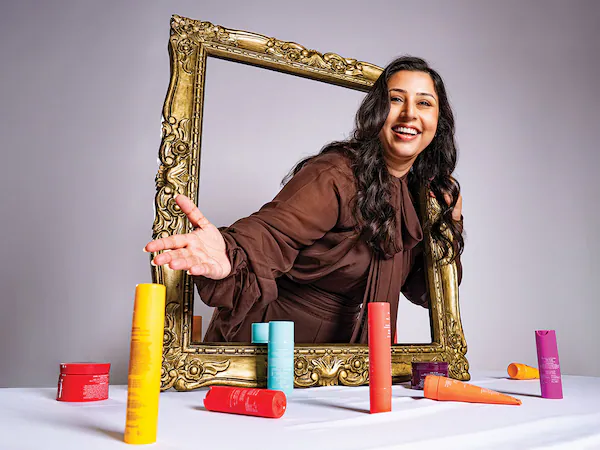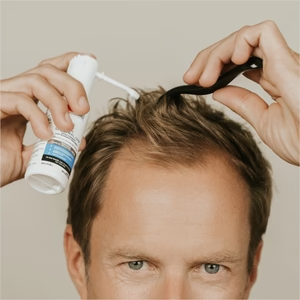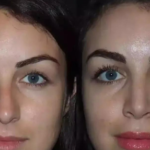Minoxidil is the cornerstone pharmaceutical treatment for many types of hair loss in women. Widely recognized and FDA-approved for treating female pattern hair loss (FPHL), this medication is a critical part of a successful hair loss solution strategy. Understanding how it works, its proper use, and its integration with other therapies is the key to achieving noticeable regrowth.
Table of Contents
Part 1: Minoxidil for Women—Mechanism and Dosage
Minoxidil is the most widely available and effective topical agent for women suffering from hair thinning (alopecia), primarily due to hormonal or hereditary causes.
| Feature | Details and Usage |
| Mechanism of Action | Minoxidil is a vasodilator that, when applied topically, stimulates blood flow to the scalp and directly prolongs the hair’s anagen (growth) phase. This causes existing follicles to grow thicker, longer, and encourages miniaturized (shrinking) follicles to revive. |
| Common Dosage | The most common prescription is a 2% topical solution (applied twice daily) or a 5% foam (applied once daily). The higher concentration foam is often preferred as it is less messy and may reduce the risk of scalp irritation caused by alcohol/propylene glycol in some liquid solutions. |
| Key Expectation | Results are not immediate. Consistent, daily use for 6 to 12 months is required to see noticeable improvement. If treatment is stopped, the benefits are lost, and hair loss resumes. |
Side Effects of Topical Minoxidil in Women
While generally safe, women must be aware of potential side effects, particularly with the 5% concentration:
- Scalp Irritation: Dryness, itching, or redness, often due to the vehicle (propylene glycol) in liquid formulations.
- Temporary Shedding: A normal “dread shed” can occur 2-8 weeks after starting treatment, as Minoxidil forces resting hairs to shed to make way for new growth. This is temporary and a sign the drug is working.
- Unwanted Facial Hair (Hypertrichosis): This is the most bothersome side effect for women. It occurs if the product drips onto the face or neck. Using the foam and washing hands immediately after application minimizes this risk.
Part 2: Holistic Hair Loss Solutions for Women
Minoxidil is often most effective when integrated with other treatments that address internal and hormonal factors contributing to hair thinning.
1. Hormonal and Prescription Therapies
- Anti-Androgens (e.g., Spironolactone): These prescription pills are frequently used in FPHL to block the effect of androgens (male hormones like DHT) on the hair follicle, targeting the root cause that Minoxidil cannot address alone.
- Nutritional Correction: Blood tests often reveal deficiencies in Iron, Vitamin D, or Zinc. Correcting these deficiencies with targeted supplements is a necessary hair loss solution, as hair growth cannot occur without these raw materials.
2. Advanced and Procedural Solutions
- Platelet-Rich Plasma (PRP) Therapy: This involves injecting concentrated growth factors from the patient’s own blood into the scalp. It is often used to boost the effectiveness of Minoxidil and thicken the hair shaft.
- Low-Level Laser Therapy (LLLT): Home-use devices (laser caps or combs) that use light to stimulate cellular energy and improve circulation, acting as an excellent non-invasive hair regrowth supplement to topical treatment.
3. Lifestyle and Hair Care
- Scalp Health: Using a gentle, anti-inflammatory shampoo (sometimes containing Ketoconazole) can reduce scalp inflammation, which hinders hair growth.
- Stress Reduction: Managing chronic stress is vital, as stress is a direct trigger for temporary but severe hair loss (Telogen Effluvium).
The Bottom Line: For women seeking a hair loss solution, Minoxidil is a clinically proven starting point. However, a lasting, effective strategy requires a comprehensive approach, coordinating Minoxidil with professional diagnosis and addressing the unique hormonal and nutritional profile of the individual.












